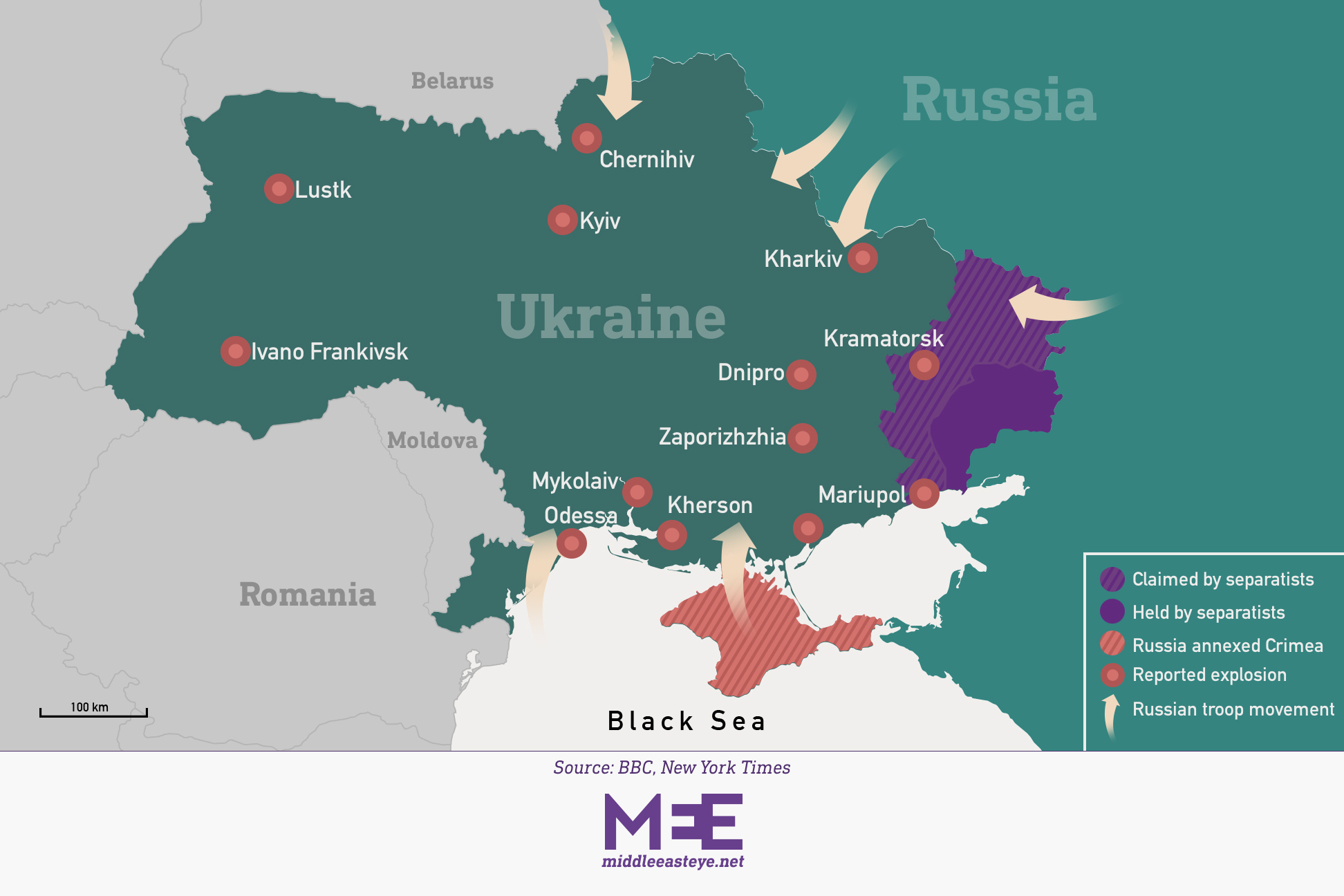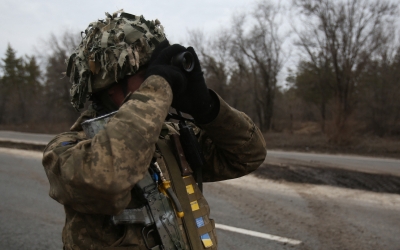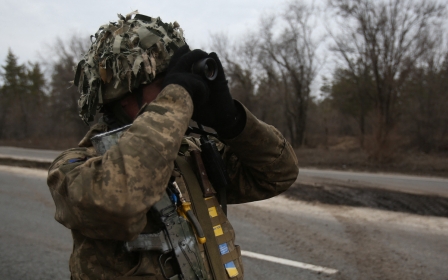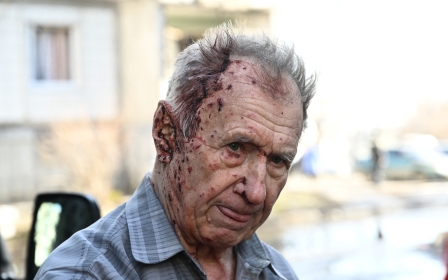Russia-Ukraine war: Thousands of Arab students stranded as bombs fall
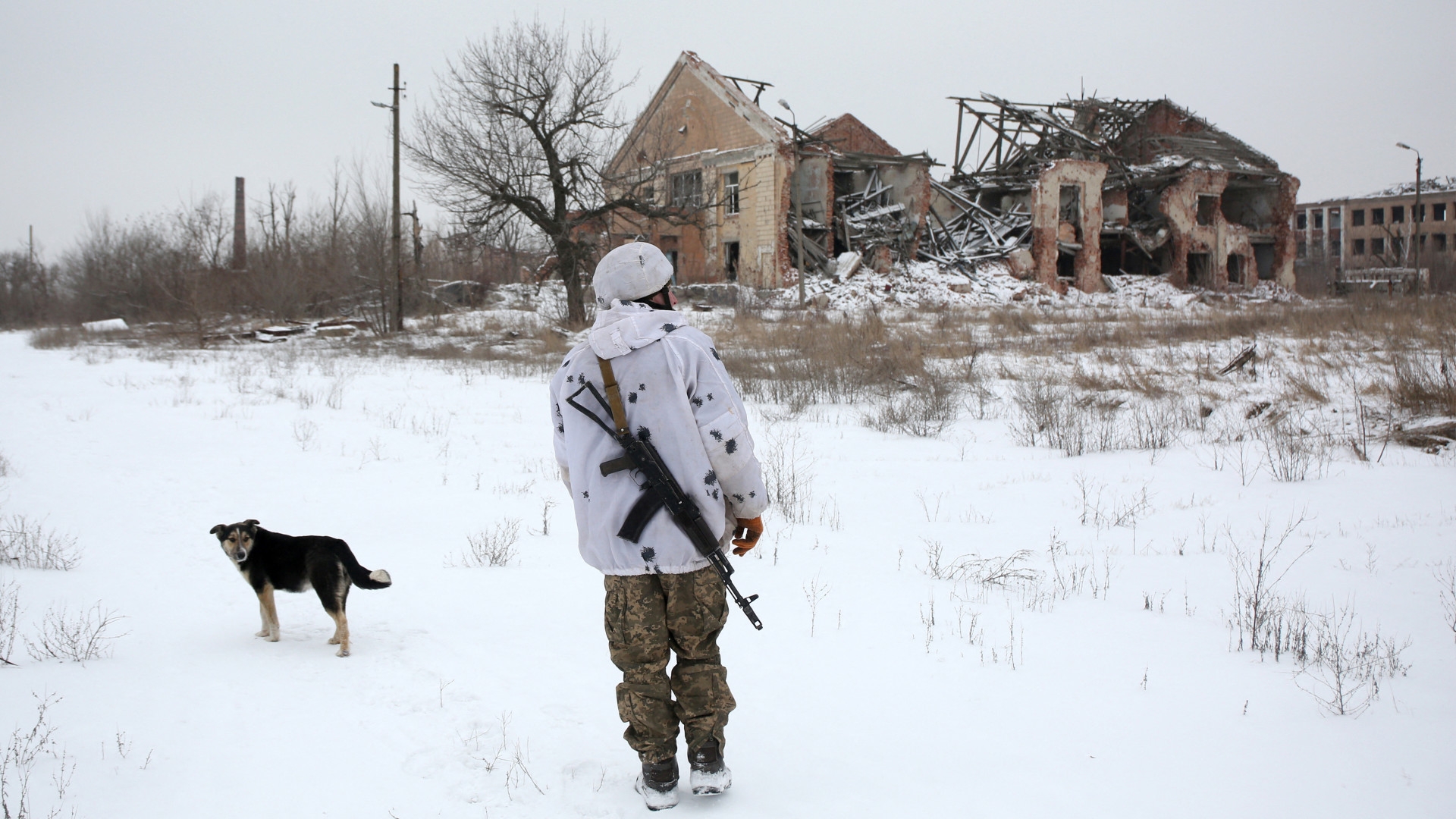
Thousands of students from the Middle East and North Africa have been left scrambling to find a way out of Ukraine after Russia invaded its neighbour.
But soon after the start of the attack, which has already resulted in dozens of deaths and drawn international condemnation, Ukraine shut down its airspace - preventing students from leaving.
'Moroccan friends who are in Ukraine right now are very frightened and waiting for the consulate to help them'
- Amine Mouhcine, Moroccan student
Figures from the Ukraine education ministry show that Morocco has the second-largest foreign student contingent in Ukraine, with 8,000 students. India has the most.
Egypt has 3,500 students in Ukraine, while Lebanese, Iraqis and Palestinians also attend Ukrainian universities.
Omar Bentabjaoute, a Moroccan student in Kharkiv, a Ukrainian city bordering Russia where explosions were reported on Thursday, said the atmosphere there was chaotic.
"It's panic outside. Everyone is running. Some people are getting money from banks. Others are rushing to get gas," Bentajoute told Middle East Eye.
"I was woken up by an explosion at 5.50AM, but for the last five hours, it's been quiet. Our water has been on and off, and we lost the internet for a short period."
Speaking from a metro station in Kharkiv, which has since become a bomb shelter, another Moroccan student said the war was "unexpected" and happened "out of the blue."
"It happened very suddenly. No one saw the war coming," said Khalil. "People are panicking and scared for what will happen next. I am panicking too. Let's hope for the best," Khalil told MEE.
Earlier this week, Moroccan officials confirmed that the kingdom had launched a series of repatriation flights from Kyiv to Rabat to bring citizens back from Ukraine.
But hundreds of Moroccan students remain there, with local outlets reporting that high prices for flights are keeping them stranded.
Last week, Amine Mouhcine, a Moroccan aviation student, flew home after paying thousands of dollars for a ticket.
Mouhcine told MEE that leaving Ukraine was a difficult choice, but he "no longer felt safe" in the country.
"The consulate told me that the situation is deteriorating, and the banks would close if Russia invades the country," said Mouhcine.
"Moroccan friends who are in Ukraine right now are very frightened and waiting for the consulate to help them."
'I will go back to Lebanon as soon as possible'
Egypt meanwhile urged its citizens in Ukraine to stay at home and said it was evaluating the evacuation options after Ukraine shut its airspace. It also told Egyptian nationals to register their details with the embassy.
Before Russia launched its invasion of Ukraine on Thursday, the families of students in Ukraine held protests in Egypt, Morocco and Lebanon, calling on their governments to bring home relatives.
Iraq's embassy in Ukraine has since Monday been in touch with the 27 universities hosting Iraqi students, according to foreign ministry spokesperson Ahmed Al-Sahaf, to secure them emergency leave if the security situation worsens.
“The embassy called on those Ukrainian universities and institutes to provide it with detailed information about the conditions and numbers of Iraqi students studying there," he said, according to the Iraqi News Agency.
Several Lebanese students MEE interviewed said they can't leave because ticket prices are too high.
Ghada is a Lebanese medical student stuck in Ivano-Frankivsk, a city in western Ukraine where explosions were reported on Thursday. She moved to Ukraine in 2018, a year before the economic crisis crippled Lebanon.
The 23-year-old said she couldn't afford to leave: neither she nor her parents have the money for a ticket.
"Even if I would have the money to buy the ticket to come back to Lebanon, I couldn't as I have to pay debts with my landlord to redeem my passport," Ghada told MEE.
"But I want to stay here as I have many problems in Lebanon. I can't do anything there."
Ali Sadaka, who lives in Kharkiv, and studies Dentistry, said he will have to borrow money to fund his exit.
"When I will get money, I will go back temporarily to Lebanon as soon as possible," said Sadaka.
"When I asked my teacher what to do, to stay or leave, she spoke to me as if I was her son, and told me to leave."
This article is available in French on Middle East Eye French edition.
Middle East Eye propose une couverture et une analyse indépendantes et incomparables du Moyen-Orient, de l’Afrique du Nord et d’autres régions du monde. Pour en savoir plus sur la reprise de ce contenu et les frais qui s’appliquent, veuillez remplir ce formulaire [en anglais]. Pour en savoir plus sur MEE, cliquez ici [en anglais].


